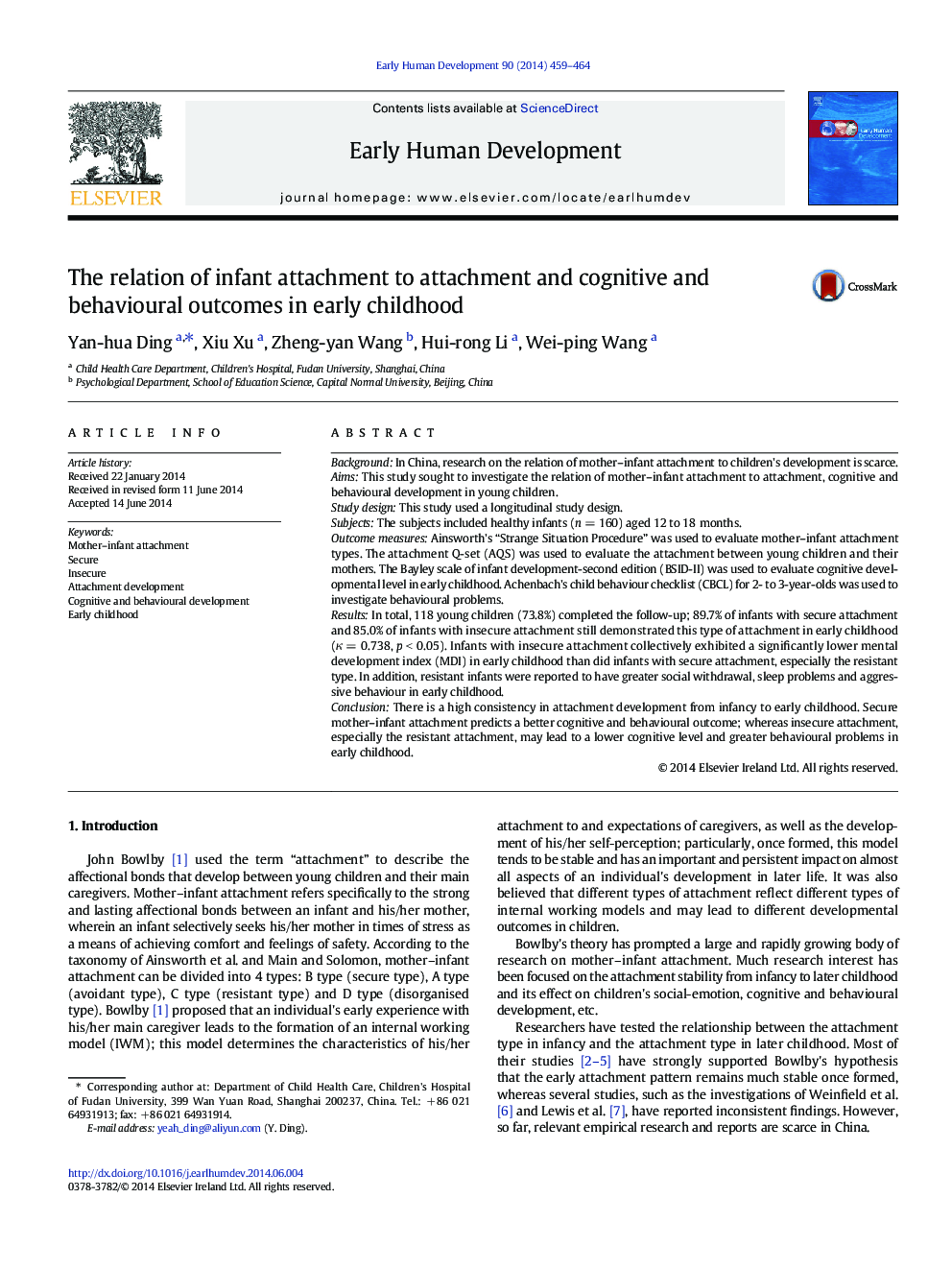| Article ID | Journal | Published Year | Pages | File Type |
|---|---|---|---|---|
| 3916508 | Early Human Development | 2014 | 6 Pages |
•This investigation is the first longitudinal study in China to evaluate the relation of early mother–infant attachment to children’s later development•It has demonstrated that the security of mother–infant attachment is highly predictive of the attachment security in early childhood•It has also provided the further evidence that the secure type of mother–infant attachment predicts a better possibility for the child's cognitive and behavioural development in early childhood.
BackgroundIn China, research on the relation of mother–infant attachment to children's development is scarce.AimsThis study sought to investigate the relation of mother–infant attachment to attachment, cognitive and behavioural development in young children.Study designThis study used a longitudinal study design.SubjectsThe subjects included healthy infants (n = 160) aged 12 to 18 months.Outcome measuresAinsworth's “Strange Situation Procedure” was used to evaluate mother–infant attachment types. The attachment Q-set (AQS) was used to evaluate the attachment between young children and their mothers. The Bayley scale of infant development-second edition (BSID-II) was used to evaluate cognitive developmental level in early childhood. Achenbach's child behaviour checklist (CBCL) for 2- to 3-year-olds was used to investigate behavioural problems.ResultsIn total, 118 young children (73.8%) completed the follow-up; 89.7% of infants with secure attachment and 85.0% of infants with insecure attachment still demonstrated this type of attachment in early childhood (κ = 0.738, p < 0.05). Infants with insecure attachment collectively exhibited a significantly lower mental development index (MDI) in early childhood than did infants with secure attachment, especially the resistant type. In addition, resistant infants were reported to have greater social withdrawal, sleep problems and aggressive behaviour in early childhood.ConclusionThere is a high consistency in attachment development from infancy to early childhood. Secure mother–infant attachment predicts a better cognitive and behavioural outcome; whereas insecure attachment, especially the resistant attachment, may lead to a lower cognitive level and greater behavioural problems in early childhood.
